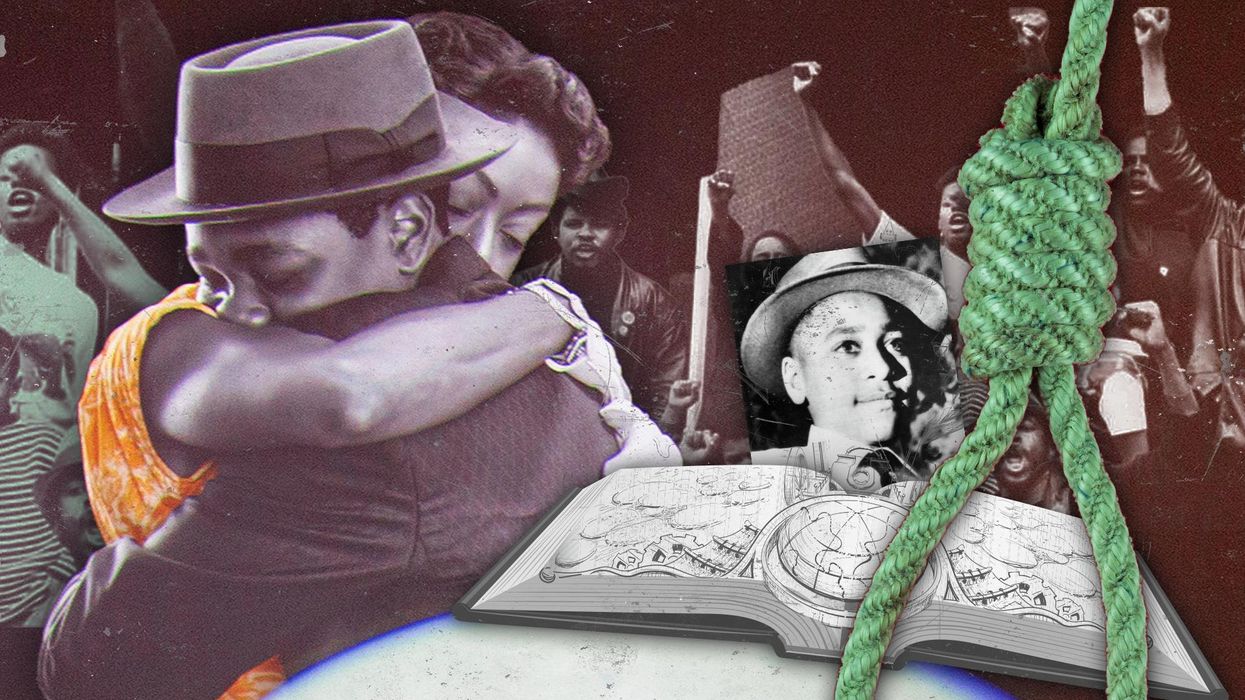
Bettmann / Contributor

I did not plan on seeing the film "Till" when I first heard a movie was being made about the gruesome murder of 14-year-old Emmett Till. I felt no need to subject myself to yet another exercise in “racial trauma porn” dressed up as a history lesson. Some of these films, including "12 Years a Slave" and "Selma," achieved critical acclaim, racking up multiple honors at film festivals and awards shows.
My skepticism was rooted in the belief that the film would be used to advance the “Selma syndrome” that is so prevalent in today’s political culture. I fully expected this movie to be used as an October surprise right before the midterms to make black voters feel like the ghosts of the Jim Crow South will rise again if they allow Republicans to win key races state and congressional races.
But I was wrong. The film focused on a dark moment in American history without overtly pushing a political agenda.
"Till" was about Emmett Till (nicknamed “Bo” by his family) as told through the eyes of his mother, Mamie Till-Mobley. The film captures their close relationship and the balance she struck as a mom trying to protect her son from a world in which the word “nigger” was used as casually as a person’s first name while allowing him to be the playful child his family knew and loved.
Without giving away too many details, the movie dealt with Emmett Till’s abduction and lynching without gratuitous violence. Much of the film was about his mother’s decision to both pursue justice for her son and allow his brutal death – and the acquittal of the men who killed him – to serve as an important national call to action in the civil rights movement.
The film was a stark reminder of what American social life was like for black Americans 70 years ago and how much progress we have made as a nation since then. Given the political battles over critical race theory and how American history is taught in schools, "Till" confirms and challenges ideas about race that have become entrenched on both sides of the political spectrum.
Race was obviously a major theme throughout the film, but the caste system common in the South went far beyond segregated water fountains. Perhaps one of the most gripping examples of how the shackles of racism handcuffed black Americans in the South was the fact that Emmett's uncle, known as “Preacher,” felt powerless to stop the men who abducted his nephew. When I saw that scene, my first thought was “Where is his gun?”
It wasn’t until later in the film that we learn Preacher kept a long gun by the front door but refused to use it. Mamie Till asked him why he didn’t use it. His answer was gut-wrenching: “If I had shot them, they would have killed all of mine.”
Preacher believed that using his gun to defend his nephew would have put his own wife and children in serious danger, so he let the men take Emmett.
Few things are as demoralizing as the inability to protect your family from physical harm. One of the reasons I’m so passionate about fatherhood is because for many years, the legal system and social custom stripped black men of their natural right to protect their families. The sad irony is now black preachers are often the ones creating theological justifications for the organizations and people who want to kill children.
Black clergymen like William Barber II and Jamal Bryant and gospel singer William Murphy are just as emasculated as Preacher was in the film. That is the only word to describe a man who won’t raise a hand – or his voice – to protect his family.
They are a far cry from the black preachers of the past who fought for civil rights because they believed that all people are created in God’s image. The black church of that era served as a moral compass for a country struggling to reconcile its professed Christian ideals with the mistreatment of fellow image-bearers based on skin color.
Ultimately, "Till" struck the right balance between history and dignity. I hope the gravity of Emmett Till’s murder will discourage self-serving politicians from using his name to draw a comparison between their critics and the lynch mob that kidnapped and killed a teenage boy. History should be explored to learn about the past, not exploited in the present for personal or political gain.